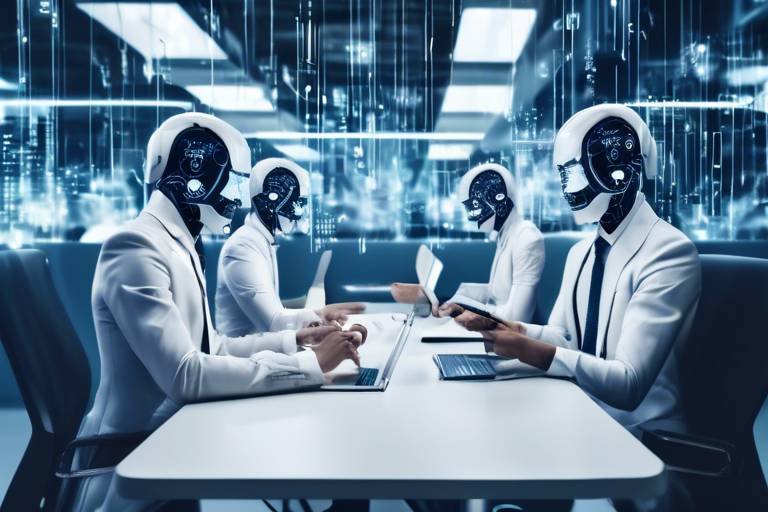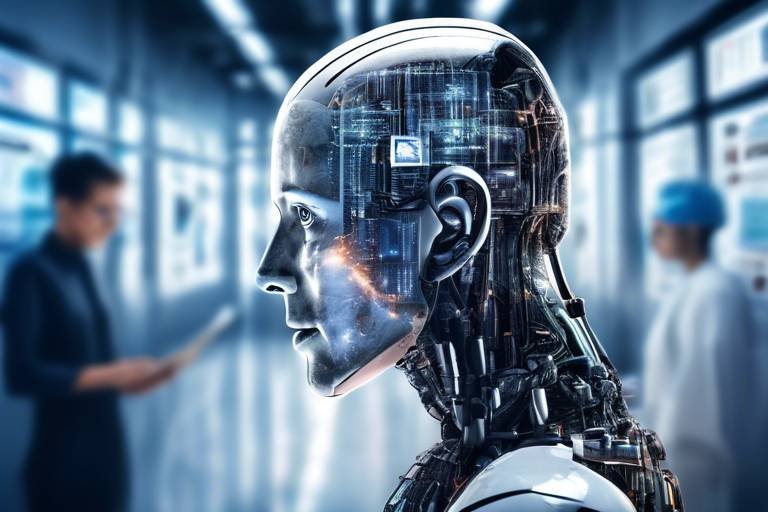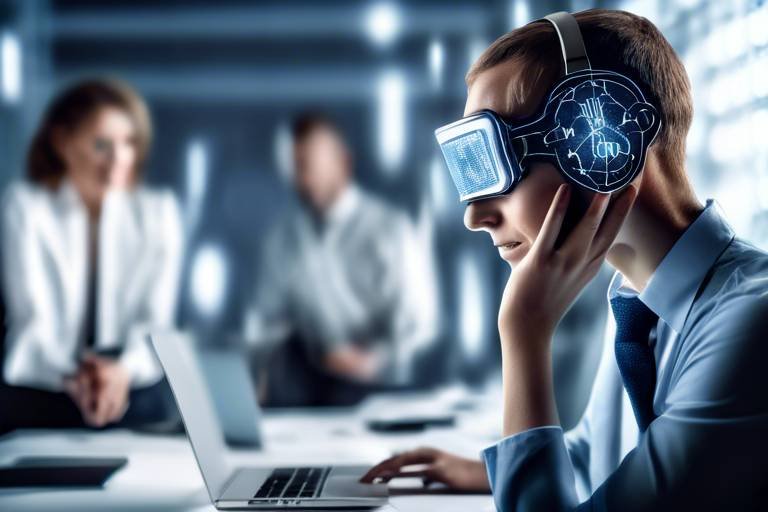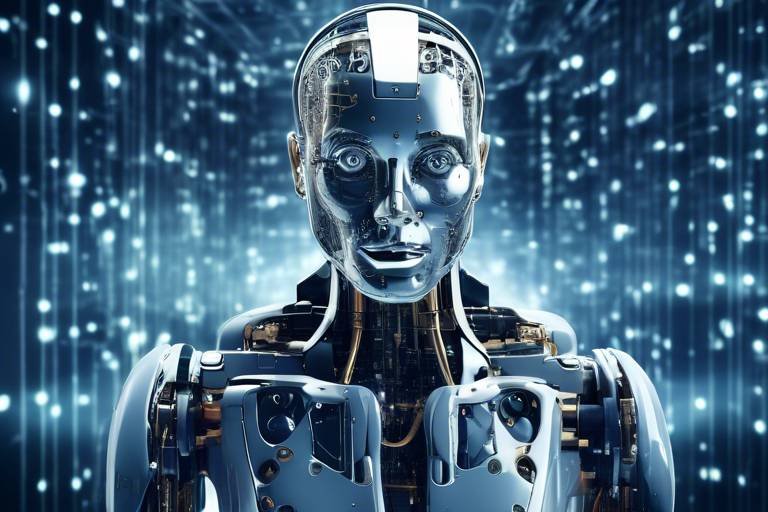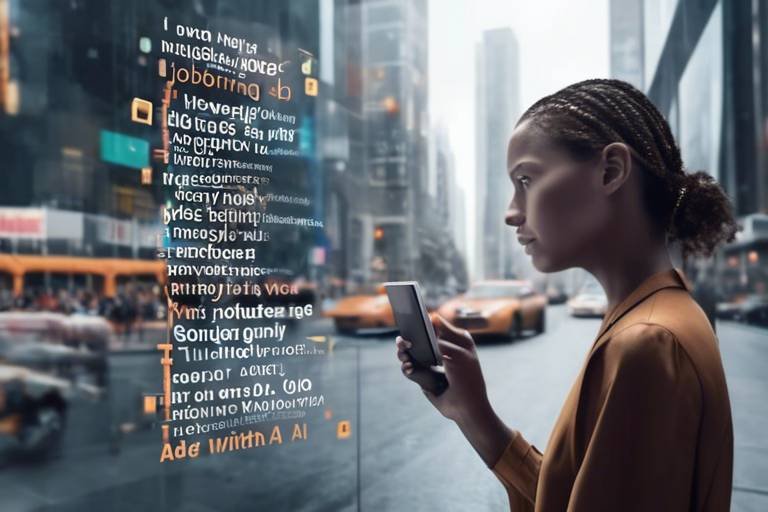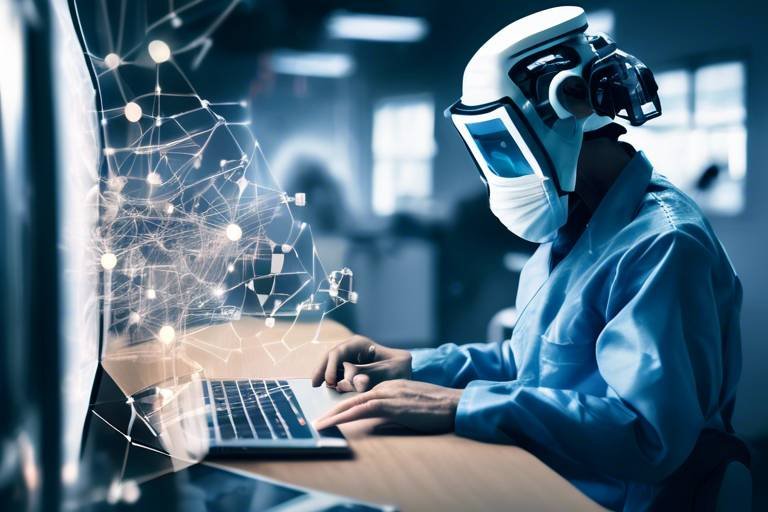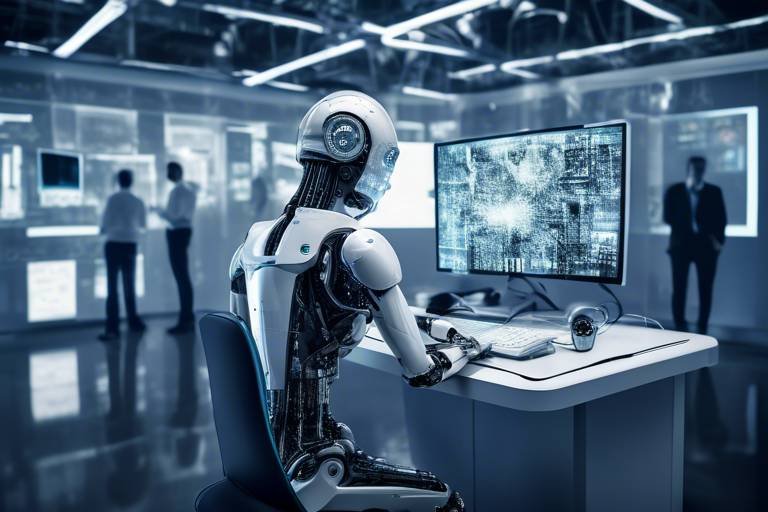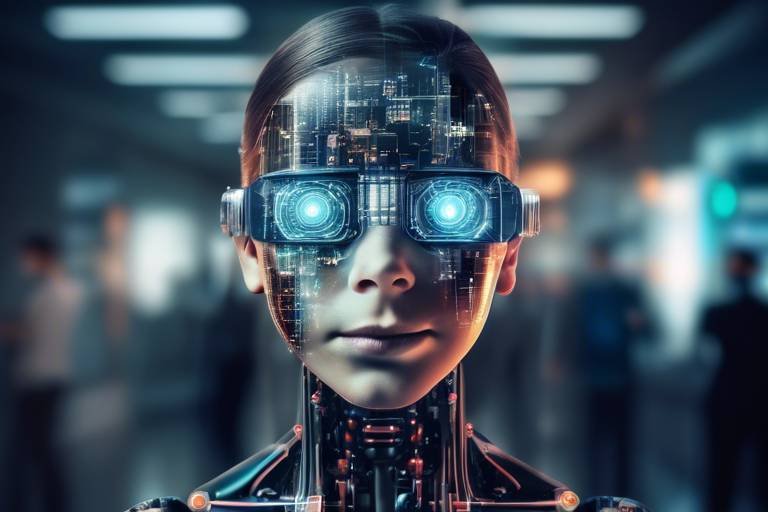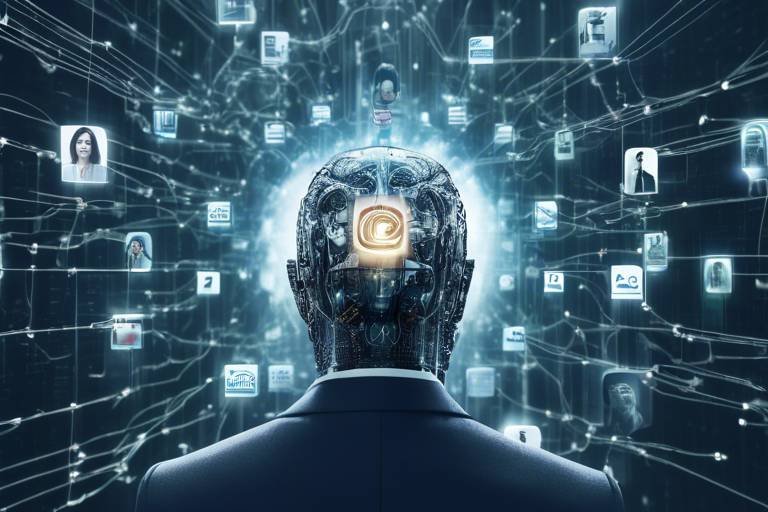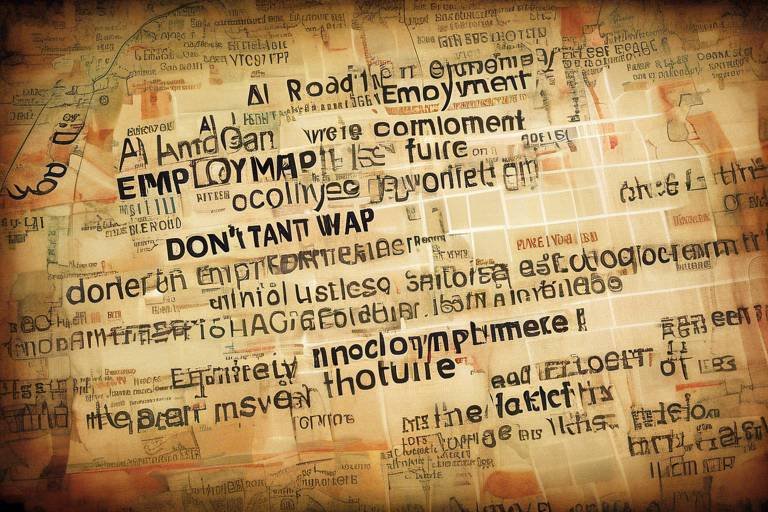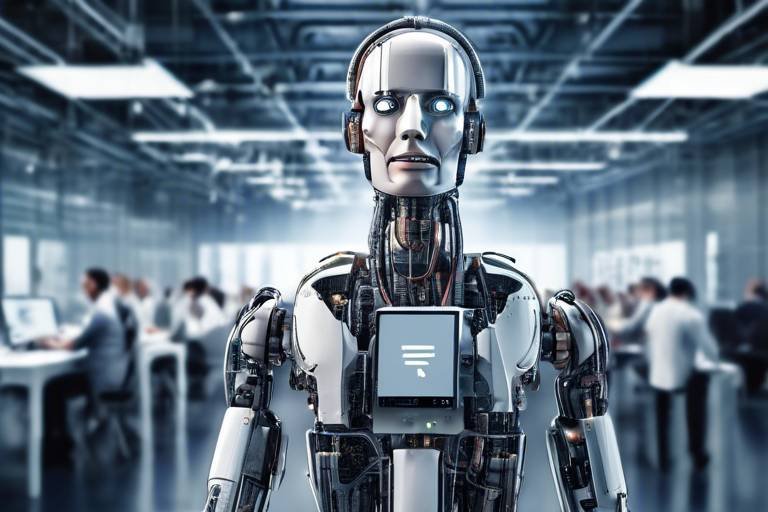How AI can Contribute to a Future Workplace
In today's fast-paced world, the integration of artificial intelligence (AI) into the workplace is not just a trend; it's a revolution. Imagine walking into an office where your computer anticipates your needs, your meetings are scheduled without the usual back-and-forth emails, and your tasks are prioritized based on urgency and importance. Sounds futuristic, right? But this is the reality that AI is shaping for us. As we delve into this article, we'll explore how AI is transforming modern work environments, enhancing productivity, streamlining communication, and ultimately fostering innovation across various industries.
One of the most significant advantages of AI is its ability to enhance productivity. Think about the hours spent on repetitive tasks—data entry, scheduling, and basic customer inquiries. AI technologies can automate these mundane activities, allowing employees to focus on higher-value tasks that require creativity and critical thinking. This shift not only boosts individual productivity but also improves overall workplace efficiency. For instance, by automating routine processes, companies can see a drastic reduction in time spent on these tasks, leading to faster project completion and a more dynamic work environment.
Effective communication is the backbone of any successful organization. AI-powered tools facilitate seamless communication among team members, breaking down geographical barriers and ensuring that information flows freely. Imagine a scenario where your team is scattered across the globe. With AI tools, collaboration becomes effortless. These tools not only keep everyone on the same page but also enhance teamwork by providing real-time updates and insights.
Enter the world of virtual assistants. These intelligent systems can help manage schedules, set reminders, and organize meetings. By taking over these administrative tasks, virtual assistants free up employees' time for more strategic activities, ultimately improving overall time management. Picture having a digital assistant that knows your preferences and can handle your calendar, leaving you to focus on what truly matters.
AI can also integrate seamlessly with popular workplace tools, enhancing their functionality and providing users with a more cohesive and efficient experience. This integration means that employees can continue using familiar tools while benefiting from AI's capabilities, making the transition smoother and more effective.
In a world that is becoming increasingly globalized, AI-driven translation services can bridge language gaps in multinational teams. This fosters inclusivity and improves understanding among diverse workforce members. Imagine being able to communicate effortlessly with colleagues from different backgrounds, enhancing collaboration and innovation.
Another remarkable contribution of AI is its ability to analyze vast amounts of data to provide insights that inform strategic decisions. Organizations can adapt swiftly to market changes and customer needs, ensuring they stay ahead of the competition. With AI's analytical power, businesses can uncover trends that were previously hidden, enabling them to make informed decisions that drive growth.
AI doesn't just enhance productivity; it also plays a crucial role in improving the employee experience. By personalizing training and development programs, AI ensures that staff members have the resources they need to grow and succeed. This tailored approach not only boosts engagement but also fosters a culture of continuous learning.
AI can assess individual skills and recommend personalized learning paths, allowing employees to develop at their own pace. This level of customization fosters continuous development and enhances employee engagement, making workers feel valued and invested in their growth.
AI tools can provide real-time feedback on employee performance, enabling managers to offer timely support and recognition. This boosts morale and productivity, creating a positive work environment where employees feel appreciated and motivated to perform at their best.
As AI continues to evolve, it will create new job roles that require human-AI collaboration. This emphasizes the need for ongoing training and adaptability in the workforce. The future workplace will not only demand technical skills but also a deep understanding of how to work alongside AI systems.
The demand for AI specialists will grow as organizations seek to implement and maintain AI systems. This creates opportunities for skilled professionals in this emerging field, paving the way for a new generation of tech-savvy workers.
Professionals who can effectively bridge the gap between human workers and AI systems will be crucial in maximizing the benefits of AI in the workplace. These experts will ensure that both humans and machines work together harmoniously, enhancing productivity and innovation.
- What is the role of AI in enhancing workplace productivity?
AI automates repetitive tasks, allowing employees to focus on more strategic activities, thus boosting overall productivity. - How does AI improve communication among teams?
AI tools facilitate seamless communication, breaking down geographical barriers and ensuring information flows freely. - What new job roles are being created due to AI?
As AI evolves, roles such as AI specialists and human-AI collaboration experts are becoming increasingly important.

Enhancing Productivity
In today’s fast-paced world, where every second counts, artificial intelligence (AI) has emerged as a game-changer in enhancing productivity across various industries. Imagine a workplace where mundane, repetitive tasks are handled by machines, freeing up valuable time for employees to focus on tasks that require creativity and strategic thinking. This is not just a dream; it’s becoming a reality thanks to AI technologies. By automating these tasks, organizations can see a significant boost in both individual and team productivity.
Think about it: when employees are relieved from the burden of monotonous duties, they can channel their energy into higher-value activities. This shift not only enhances personal productivity but also creates a ripple effect that improves overall workplace efficiency. For instance, consider a scenario where an employee spends hours compiling data for reports. With AI tools, this process can be automated, allowing the employee to focus on analyzing the data and making informed decisions. It’s like having a personal assistant who never tires and can work around the clock!
AI technologies can also enhance productivity through advanced data analytics. By analyzing vast amounts of data quickly and accurately, AI can provide insights that humans might overlook. For example, AI can identify trends in employee performance, customer behavior, or market dynamics, enabling organizations to make data-driven decisions swiftly. This ability to adapt and respond to changes in real-time is crucial in maintaining a competitive edge in today’s market.
Furthermore, the integration of AI with existing workplace tools elevates productivity to new heights. Imagine using your favorite project management software, but with an AI enhancement that predicts project timelines, identifies potential roadblocks, and suggests optimal resource allocation. This level of integration not only streamlines workflows but also provides a cohesive experience for users, making it easier to collaborate and communicate effectively.
One of the most exciting aspects of AI in the workplace is its potential to create a culture of continuous improvement. With AI tools providing regular feedback and performance metrics, employees can identify areas for growth and development. This feedback loop encourages a proactive approach to personal and professional growth, ultimately leading to a more engaged and productive workforce.
In summary, the integration of AI into the workplace is not merely about replacing human effort but enhancing it. By automating repetitive tasks, providing valuable insights, and fostering a culture of continuous learning, AI is revolutionizing how we work. As companies embrace these technologies, they find themselves not just surviving but thriving in an increasingly competitive landscape.

Streamlining Communication
In today's fast-paced work environment, effective communication is the backbone of any successful organization. With the advent of AI-powered tools, companies are experiencing a revolution in how teams interact and collaborate. Imagine a workplace where geographical barriers dissolve, and information flows seamlessly across departments. Sounds like a dream, right? Well, AI is making that dream a reality! By leveraging advanced technologies, businesses can enhance communication, leading to improved collaboration and teamwork.
One of the standout features of AI in communication is the emergence of virtual assistants. These digital helpers can manage schedules, set reminders, and organize meetings with a few simple commands. Just think about it: instead of spending hours coordinating a meeting that works for everyone, you could have an AI assistant handle the logistics. This not only saves time but also allows employees to focus on more strategic tasks that require their expertise. In a world where time is money, this efficiency is invaluable!
Moreover, AI can integrate with existing workplace tools, enhancing their functionality. For instance, imagine your team using a project management tool that not only tracks tasks but also provides insights on team member availability and suggests optimal times for collaboration. This level of integration creates a more cohesive and efficient experience for users, making it easier to stay on the same page.
Another remarkable capability of AI is real-time language translation. In an increasingly globalized world, teams often consist of members from various linguistic backgrounds. AI-driven translation services can bridge these language gaps, fostering inclusivity and improving understanding among diverse workforce members. This means that team members can communicate effectively, regardless of their native language, leading to a more harmonious and productive work environment.
To sum it up, AI is not just a tool for automating tasks; it’s a game-changer in the realm of communication. By streamlining how teams interact, AI enhances collaboration and ensures that everyone is on the same wavelength. As we move forward, embracing these technologies will be essential for organizations aiming to thrive in a competitive landscape.
- How does AI improve communication in the workplace?
AI enhances communication by automating scheduling, providing real-time translation, and integrating with existing tools to streamline processes. - What are virtual assistants?
Virtual assistants are AI-driven tools that help manage tasks like scheduling meetings, setting reminders, and organizing workflows, allowing employees to focus on more important tasks. - Can AI help with language barriers in a diverse workplace?
Yes! AI-driven translation services can facilitate communication among team members who speak different languages, promoting inclusivity and understanding.
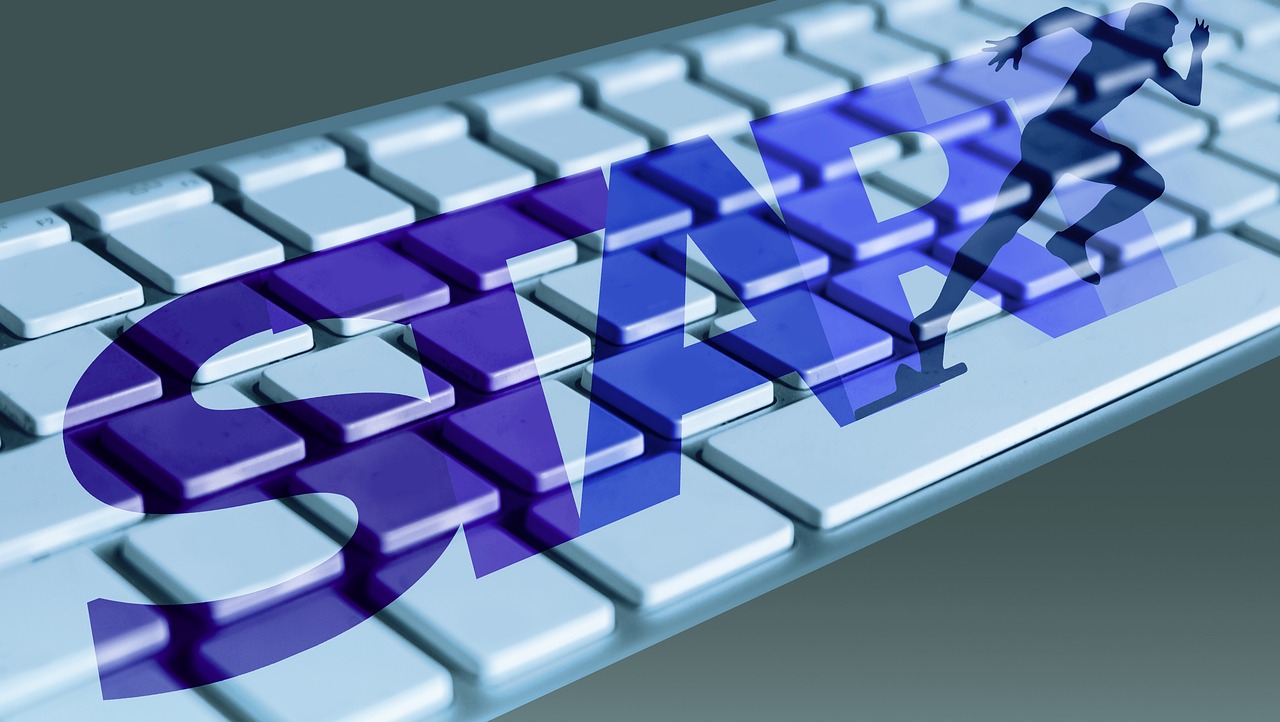
Virtual Assistants
In today's fast-paced work environment, have emerged as invaluable tools that can significantly enhance productivity and efficiency. Imagine having a dedicated assistant who never sleeps, can multitask effortlessly, and is always ready to help you manage your day. That's precisely what virtual assistants bring to the table!
These AI-driven technologies can take on a variety of tasks, ranging from simple reminders to complex scheduling. By automating these repetitive duties, virtual assistants free up precious time for employees, allowing them to focus on more strategic and creative endeavors. For instance, instead of spending hours on administrative tasks, employees can now channel their energy into innovative projects that drive the company forward.
Moreover, the integration of virtual assistants with existing workplace tools amplifies their effectiveness. Many organizations use tools like Google Calendar, Slack, or Microsoft Teams, and virtual assistants can seamlessly integrate with these platforms to enhance productivity. This integration allows for:
- Automatic scheduling of meetings based on participants' availability.
- Setting reminders for important deadlines and tasks.
- Organizing and prioritizing emails and messages for better communication.
By utilizing virtual assistants, companies can also improve their time management practices. For example, a virtual assistant can analyze an employee's calendar and suggest optimal times for meetings, ensuring that everyone is on the same page without the back-and-forth emails that often bog down productivity. This not only saves time but also reduces stress levels, creating a more harmonious workplace.
Furthermore, the capabilities of virtual assistants extend beyond mere scheduling. They can provide real-time data and insights, helping teams make informed decisions quickly. Imagine being in a meeting where your virtual assistant can pull up relevant reports or data points at the click of a button. This instant access to information can be a game-changer in fast-paced discussions, allowing teams to pivot and adapt their strategies on the fly.
In conclusion, virtual assistants represent a significant leap forward in workplace productivity. By automating mundane tasks, integrating with existing tools, and providing real-time insights, they empower employees to focus on what truly matters—driving innovation and success within their organizations. As we continue to embrace AI in the workplace, the role of virtual assistants will only grow, making them an essential component of modern work life.
- What are virtual assistants?
Virtual assistants are AI-driven tools that help manage tasks such as scheduling, reminders, and data retrieval, ultimately enhancing productivity. - How do virtual assistants improve productivity?
By automating repetitive tasks and providing real-time insights, virtual assistants allow employees to focus on more strategic activities. - Can virtual assistants integrate with existing tools?
Yes, virtual assistants can seamlessly integrate with popular workplace tools like Google Calendar, Slack, and Microsoft Teams. - What tasks can virtual assistants handle?
They can manage schedules, set reminders, organize meetings, and provide data insights, among other tasks.

Integration with Existing Tools
In today's fast-paced work environment, the ability to seamlessly integrate artificial intelligence with existing tools is nothing short of revolutionary. Imagine your favorite workplace software suddenly becoming smarter—this is the reality that AI brings to the table. By enhancing the functionality of tools we already use, AI not only improves efficiency but also amplifies productivity across the board. For instance, consider how AI can work with project management software to automatically update task statuses based on team members' inputs or how it can analyze email communications to prioritize urgent messages. This level of integration allows employees to spend less time on mundane tasks and more time on strategic initiatives.
Moreover, the integration of AI with existing tools can lead to a more cohesive work experience. When AI systems are designed to work in tandem with popular applications like Slack, Trello, or Google Workspace, users can benefit from streamlined workflows and enhanced collaboration. For example, AI can automate meeting scheduling by analyzing everyone’s calendars and finding the best time slots. This not only saves time but also reduces the back-and-forth that usually accompanies scheduling meetings. The result? A more harmonious and productive work environment.
Here’s a quick look at some key benefits of integrating AI with existing workplace tools:
- Increased Efficiency: AI can automate repetitive tasks, reducing the burden on employees.
- Enhanced Collaboration: Tools that integrate AI can facilitate better communication and project tracking.
- Data Insights: AI can analyze data from various applications to provide actionable insights.
- Improved User Experience: A unified interface makes it easier for employees to navigate their tasks.
Furthermore, the adaptability of AI allows it to be customized to fit the unique needs of different organizations. Whether you're in finance, healthcare, or marketing, AI can be tailored to enhance the tools that are already part of your workflow. This means that companies can leverage their existing investments while also upgrading their capabilities. It's like giving your old car a new engine—suddenly, it runs smoother and faster without needing a complete overhaul.
In conclusion, the integration of AI with existing tools is not just a trend; it's a necessity for organizations looking to thrive in the digital age. By embracing this technology, companies can unlock new levels of productivity and innovation, preparing themselves for the future of work. As we continue to see advancements in AI, the potential for integration will only grow, making it an exciting time to be part of the workforce.

Real-time Language Translation
Imagine a workplace where language barriers are a thing of the past. With the advent of AI-driven translation services, this dream is rapidly becoming a reality. These innovative tools can translate conversations, documents, and even live video feeds in real-time, making communication seamless among team members who speak different languages. This capability not only enhances collaboration but also fosters a sense of inclusivity, allowing every voice to be heard regardless of linguistic background.
In today's globalized economy, companies often operate across multiple countries, employing a diverse workforce. This diversity is a tremendous asset, but it can also lead to misunderstandings and miscommunications. AI-powered translation tools act as a bridge, ensuring that information flows smoothly between employees. For instance, a team meeting involving participants from Japan, Brazil, and Germany can be conducted without the usual hiccups associated with language differences. With real-time translation, everyone can contribute to discussions, share ideas, and engage fully, ultimately leading to more innovative solutions.
Furthermore, these translation tools are not just limited to spoken language; they extend to written communication as well. Imagine sending an email or a report to colleagues around the world and having it automatically translated into their preferred language. This feature significantly reduces the time spent on manual translations and enhances productivity. It also opens up opportunities for collaboration with international partners, as businesses can easily share insights and strategies without the fear of misinterpretation.
However, it’s essential to recognize that while AI translation tools are incredibly powerful, they are not infallible. They rely on vast datasets and algorithms to provide accurate translations, and sometimes nuances or cultural contexts can be lost. Therefore, it’s crucial for organizations to combine these tools with human oversight, ensuring that the essence of the message is retained. In a nutshell, is a game-changer in the modern workplace, paving the way for a more connected and collaborative environment.
- How does AI-powered translation work? AI translation tools use machine learning algorithms to analyze and translate text or speech in real-time, continuously improving their accuracy through exposure to more data.
- Are there any limitations to AI translation tools? Yes, while they are highly effective, they may struggle with idiomatic expressions, cultural nuances, or specialized jargon, which can lead to inaccuracies.
- Can these tools be used for all languages? Most AI translation services support a wide range of languages, but the quality of translation can vary depending on the language pair and the complexity of the text.
- Do AI translation tools require internet access? Many AI translation tools operate online to access their databases, but some applications offer offline capabilities for limited functionality.

Data-Driven Decision Making
In today’s fast-paced business environment, is not just a buzzword; it’s a necessity. Organizations are inundated with a vast amount of data, and the ability to analyze this information effectively can set a company apart from its competitors. Imagine trying to navigate through a dense fog without a compass—this is what making decisions without data feels like. With AI stepping in as our trusty navigator, businesses can uncover insights that were previously hidden, allowing them to make informed choices that drive success.
AI technologies excel at processing and analyzing large datasets, identifying patterns and trends that might escape human analysts. For instance, predictive analytics can forecast customer behavior by examining past interactions and preferences, enabling companies to tailor their marketing strategies accordingly. By leveraging these insights, organizations can not only enhance customer satisfaction but also improve their bottom line.
Moreover, AI can assist in real-time analysis, providing companies with the agility they need to respond to market fluctuations. For example, a retail company can use AI to monitor sales data continuously and adjust inventory levels dynamically, ensuring they meet customer demand without overstocking. This kind of adaptive strategy is crucial in an era where consumer preferences can change overnight.
To illustrate the impact of data-driven decision making, consider the following table that highlights the benefits of integrating AI into business processes:
| Benefit | Description |
|---|---|
| Increased Efficiency | AI can process data faster than humans, allowing quicker decision-making. |
| Enhanced Accuracy | Data analysis through AI reduces human error, leading to more reliable outcomes. |
| Predictive Insights | AI can forecast trends, helping businesses stay ahead of the curve. |
| Cost Savings | Automating data analysis can lower operational costs significantly. |
In summary, embracing with the help of AI not only empowers organizations to make smarter choices but also fosters a culture of continuous improvement. As businesses continue to evolve, those that harness the power of data will undoubtedly lead the charge into a more innovative and successful future.
- What is data-driven decision making?
Data-driven decision making refers to the practice of basing decisions on data analysis and interpretation rather than intuition or observation alone. - How does AI contribute to data-driven decision making?
AI can analyze large datasets quickly and accurately, uncovering insights and trends that help organizations make informed decisions. - What are the benefits of using AI for decision making?
Benefits include increased efficiency, enhanced accuracy, predictive insights, and cost savings, all of which contribute to better business outcomes. - Can small businesses benefit from data-driven decision making?
Absolutely! Small businesses can leverage AI tools to gain insights that help them compete effectively in their markets.

Improving Employee Experience
In today's fast-paced work environment, enhancing the employee experience is more crucial than ever. With the integration of artificial intelligence (AI), organizations are finding innovative ways to personalize and enrich the work life of their employees. Imagine a workplace where every individual feels valued and understood; that's the power of AI in shaping a positive employee experience. By leveraging AI, companies can tailor training programs, streamline feedback mechanisms, and create a more engaging work atmosphere.
One of the most significant contributions of AI to employee experience is its ability to create customized learning paths. Traditional training programs often adopt a one-size-fits-all approach, which can leave many employees feeling disconnected from their development. However, with AI, organizations can assess individual skills and preferences, recommending personalized learning opportunities that align with each employee's career goals. This not only fosters continuous development but also enhances engagement, making employees feel more invested in their growth.
Another area where AI shines is in feedback and performance management. In the past, performance reviews were often infrequent and based on outdated information. Now, AI tools can provide real-time feedback on employee performance, enabling managers to offer timely support and recognition. Imagine receiving constructive feedback just when you need it, rather than waiting for a quarterly review. This immediate response can significantly boost morale and productivity, creating a culture of continuous improvement and recognition.
Furthermore, AI can help organizations understand employee sentiment through data analysis. By analyzing feedback from various sources, such as surveys and social media, AI can identify trends and areas for improvement. This data-driven approach allows companies to make informed decisions that enhance the overall employee experience. For instance, if AI detects a decline in employee satisfaction, organizations can promptly investigate and implement changes to address the issues, demonstrating that they value their employees' well-being.
To give you a clearer picture of how AI can improve the employee experience, consider the following table that summarizes key benefits:
| AI Application | Benefit |
|---|---|
| Customized Learning Paths | Tailored training programs that align with individual career goals. |
| Real-time Feedback | Immediate performance insights that foster continuous improvement. |
| Sentiment Analysis | Understanding employee sentiment to drive engagement and satisfaction. |
In conclusion, the role of AI in improving employee experience cannot be overstated. By personalizing learning opportunities, providing timely feedback, and analyzing employee sentiment, organizations can create a work environment that not only enhances productivity but also fosters a sense of belonging and engagement among employees. In this ever-evolving landscape, embracing AI is not just an option; it’s a necessity for companies looking to thrive and retain top talent.
- How does AI personalize employee training? AI analyzes individual skills and preferences to recommend tailored learning paths that align with career goals.
- What is the role of AI in performance management? AI provides real-time feedback, enabling managers to support and recognize employees promptly, enhancing overall morale.
- Can AI help in understanding employee satisfaction? Yes, AI can analyze feedback and sentiment data to identify trends and areas for improvement, helping organizations enhance the employee experience.

Customized Learning Paths
In today's fast-paced work environment, the need for continuous learning is more critical than ever. powered by artificial intelligence (AI) can revolutionize how employees acquire new skills and knowledge. Imagine a world where your professional development is tailored specifically to your strengths, weaknesses, and career aspirations—sounds appealing, right? That's exactly what AI can offer. By analyzing an individual's performance data, learning styles, and career goals, AI can create a unique roadmap for each employee, guiding them through their learning journey.
For instance, if an employee excels in analytical thinking but struggles with project management, AI can identify these gaps and recommend targeted training modules. This personalized approach not only enhances learning efficiency but also keeps employees engaged and motivated. Just like a personal trainer who tailors workouts to fit your specific fitness goals, AI-driven learning paths ensure that every training session counts.
Moreover, the adaptability of AI means that these learning paths can evolve as the employee grows. As new skills are acquired, the system can adjust the curriculum to introduce more advanced topics or shift focus to emerging industry trends. This dynamic learning experience fosters a culture of continuous improvement, making employees feel valued and invested in their roles.
| Employee Skill Level | Recommended Learning Path |
|---|---|
| Beginner | Introductory courses on fundamental concepts |
| Intermediate | Advanced courses with practical applications |
| Advanced | Leadership training and specialized certifications |
Additionally, AI can facilitate peer learning by connecting employees with similar learning goals or complementary skills. This not only fosters collaboration but also creates a support network where individuals can share experiences and insights. Think of it as a study group that’s always available, tailored to meet the unique needs of each participant.
As organizations embrace this innovative approach to learning, they will find that employees are not just better equipped to handle their current roles but are also prepared for future challenges. In a world where change is the only constant, having a robust, personalized learning strategy is not just an advantage—it's a necessity.
- What are customized learning paths? Customized learning paths are personalized training programs designed to meet the specific needs and goals of individual employees.
- How does AI contribute to creating these paths? AI analyzes performance data and learning preferences to recommend tailored courses and resources.
- Can these learning paths change over time? Yes, AI can adapt learning paths based on the employee's progress and evolving industry demands.
- What benefits do customized learning paths offer? They enhance engagement, improve skill acquisition, and foster a culture of continuous learning within the organization.

Feedback and Performance Management
In today's fast-paced work environment, are more important than ever. Traditional methods of performance reviews, often conducted annually, can feel outdated and ineffective. Enter AI-powered tools that revolutionize the way we approach employee feedback. These innovative systems provide real-time insights into employee performance, enabling managers to offer timely support and recognition. Imagine a world where employees receive feedback as quickly as they complete tasks – that's the power of AI!
One of the most significant advantages of AI in performance management is its ability to analyze vast amounts of data. This data-driven approach allows managers to identify patterns and trends in employee performance, providing a clearer picture of individual contributions. For instance, AI can track metrics such as project completion rates, collaboration levels, and even employee engagement scores. By harnessing this data, organizations can make informed decisions about promotions, raises, and professional development opportunities.
Moreover, AI tools can facilitate a culture of continuous feedback. Instead of waiting for annual reviews, employees can receive instant feedback on their work. This immediacy not only helps employees improve their performance but also fosters a sense of accountability. Just think about it: when feedback is readily available, employees are more likely to take ownership of their work and strive for excellence.
To illustrate the impact of AI on feedback and performance management, consider the following table:
| Traditional Methods | AI-Powered Approaches |
|---|---|
| Annual performance reviews | Continuous feedback loops |
| Subjective assessments | Data-driven insights |
| Limited employee engagement | Enhanced employee involvement |
| Delayed recognition | Instant recognition and support |
Furthermore, AI can help managers tailor their feedback to individual employees. By analyzing personality traits and work styles, AI tools can suggest the most effective communication methods for each team member. This personalization ensures that feedback is not only constructive but also resonates with the recipient, making it more likely to drive positive change.
In conclusion, the integration of AI into feedback and performance management is not just a trend; it's a fundamental shift in how we nurture talent within organizations. By leveraging AI's capabilities, companies can create a more dynamic, responsive, and engaged workforce. As we look toward the future, it's clear that AI will play a pivotal role in shaping a workplace where feedback is timely, relevant, and deeply impactful.
- How does AI improve feedback mechanisms? AI enhances feedback by providing real-time data and insights, allowing for immediate recognition and support.
- Can AI replace human managers in performance evaluations? While AI can assist in data analysis and feedback delivery, human judgment and empathy remain irreplaceable in performance evaluations.
- What are the potential challenges of using AI in performance management? Challenges may include data privacy concerns, the need for training on AI tools, and ensuring that AI complements rather than replaces human interaction.
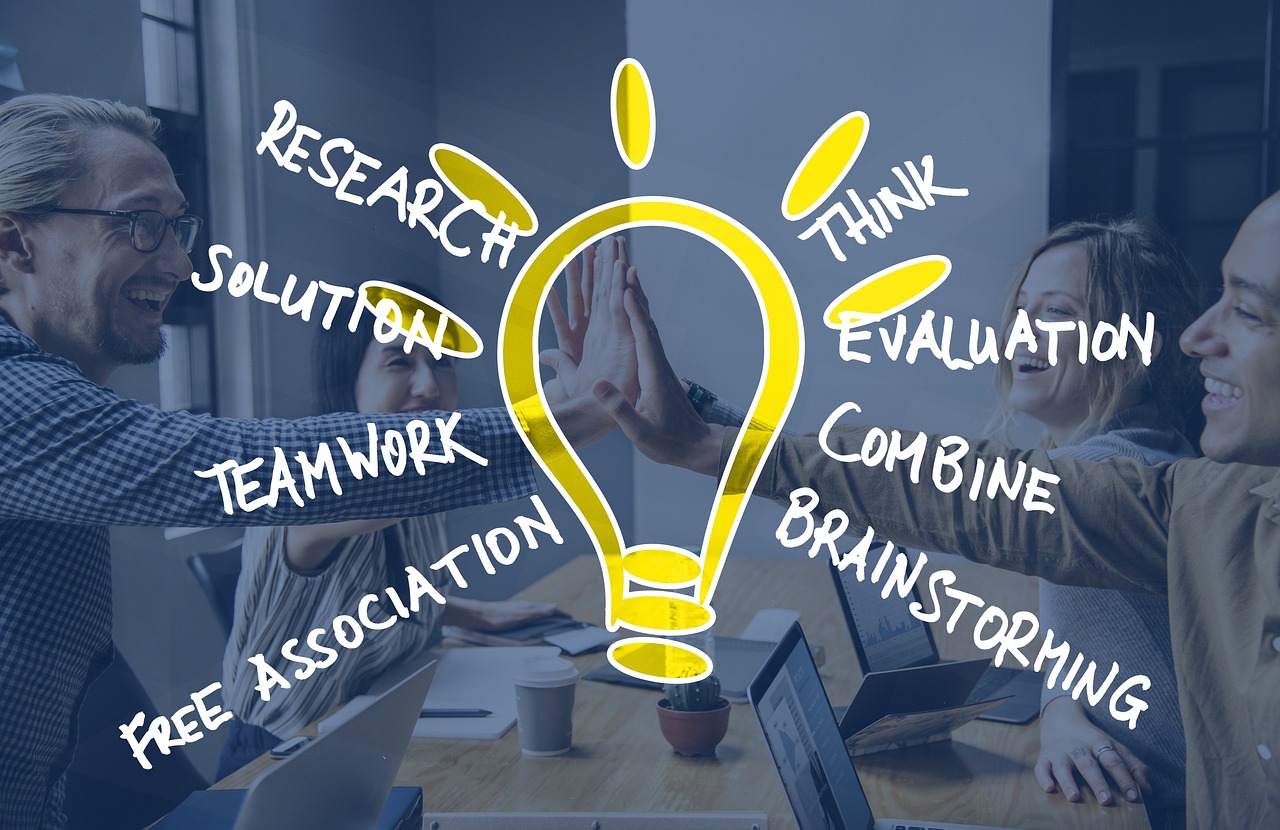
Future Job Roles
As we stand on the brink of a technological revolution, the workplace is undergoing a seismic shift thanks to artificial intelligence (AI). This evolution is not just about robots taking over jobs; rather, it’s about creating a new landscape of opportunities that require a unique blend of human skills and AI capabilities. The future job roles that will emerge are not merely replacements for existing positions but rather innovative roles that enhance collaboration between humans and machines. Imagine a world where your coworker is an AI system that not only assists you but also learns from your interactions to improve its support. Exciting, isn’t it?
One of the most significant aspects of this transformation is the rise of AI Specialists. As organizations increasingly adopt AI technologies, the demand for professionals who can implement, manage, and optimize these systems will skyrocket. These specialists will not only need to understand the technical aspects of AI but also possess a keen sense of how to align AI capabilities with business goals. They will be the architects of the AI-driven workplace, ensuring that these systems are effectively integrated into daily operations.
Another pivotal role that will gain prominence is that of Human-AI Collaboration Experts. These professionals will serve as the vital link between human employees and AI systems, ensuring that both can work together harmoniously. Think of them as the translators in a world where humans and machines speak different languages. They will help organizations maximize the benefits of AI by facilitating seamless interactions, addressing concerns about job displacement, and fostering a culture of collaboration. Their skills will be essential in training both AI systems and human workers to understand each other better.
Moreover, the evolution of AI will lead to the creation of entirely new job roles that we can’t even imagine today. For instance, consider the possibility of AI Ethicists—professionals dedicated to ensuring that AI systems are developed and used ethically. As AI continues to permeate various aspects of our lives, questions surrounding privacy, bias, and accountability will become increasingly critical. These ethicists will guide organizations in navigating the complex moral landscape of AI deployment.
To illustrate the potential future job roles, here’s a quick overview:
| Job Role | Description |
|---|---|
| AI Specialist | Professionals who implement and manage AI systems within organizations. |
| Human-AI Collaboration Expert | Facilitators who bridge the gap between human workers and AI systems. |
| AI Ethicist | Advisors on the ethical implications of AI technology in the workplace. |
| Data Curators | Individuals responsible for managing and organizing data for AI training. |
| AI Trainers | Professionals who train AI systems to ensure they meet organizational needs. |
In summary, the future of work in an AI-driven world is not about job loss but rather about job transformation. As new roles emerge, workers will need to adapt and upskill continuously to thrive in this changing environment. The key to success will be embracing lifelong learning and being open to new opportunities that arise from this technological advancement. So, are you ready to step into the future?
- What skills will be most important for future job roles? Adaptability, technical skills related to AI, and strong communication skills will be crucial.
- Will AI replace human jobs? While some jobs may be automated, many new roles will emerge that require human oversight and collaboration with AI.
- How can I prepare for a job in an AI-driven workplace? Focus on developing technical skills, enhancing your problem-solving abilities, and staying informed about AI trends.

AI Specialists
As the world continues to embrace the digital age, the demand for is skyrocketing. These professionals are not just tech-savvy individuals; they are the architects of the future workplace, tasked with designing, implementing, and maintaining complex AI systems. Imagine a world where machines not only perform tasks but also learn and adapt based on human interactions. That’s where AI specialists come in, bridging the gap between technology and human needs.
AI specialists come from various backgrounds, including computer science, data analysis, and engineering. Their primary role involves understanding algorithms, machine learning models, and data processing techniques to create intelligent systems that can perform tasks traditionally done by humans. This might sound daunting, but the beauty of this field lies in its interdisciplinary nature. For instance, an AI specialist might collaborate with a marketing team to develop predictive models that forecast consumer behavior, or work alongside healthcare professionals to design AI that assists in diagnosing diseases.
To thrive in this rapidly evolving field, AI specialists need to possess a unique set of skills. Here are some essential skills that are highly sought after:
- Programming Languages: Proficiency in languages like Python, R, and Java is crucial for developing AI applications.
- Machine Learning: An in-depth understanding of machine learning algorithms and their applications is fundamental.
- Data Analysis: The ability to analyze and interpret complex data sets is vital for creating effective AI solutions.
- Problem-Solving: Creative problem-solving skills are necessary to tackle the challenges that arise when implementing AI technology.
As organizations increasingly recognize the value of AI, they are investing heavily in building teams of specialists who can harness its potential. This trend is creating a ripple effect in the job market, leading to the emergence of new roles and opportunities. Not only are companies looking for AI specialists, but they are also seeking individuals who can manage and oversee AI projects, ensuring that these systems align with business goals and ethical standards.
Furthermore, the role of an AI specialist is not static; it evolves as technology advances. Continuous learning and adaptation are essential. Many professionals in this field engage in ongoing education, attending workshops, webinars, and conferences to stay updated on the latest trends and tools in AI. This commitment to lifelong learning enables them to remain competitive in an ever-changing landscape.
In conclusion, the rise of AI specialists signifies a transformative shift in the workplace. These professionals are not just tech experts; they are innovators who will shape the future of work. As businesses continue to integrate AI into their operations, the need for skilled specialists will only grow, creating a wealth of opportunities for those ready to embark on this exciting career path.
Q1: What qualifications do I need to become an AI specialist?
A1: Most AI specialists have a background in computer science, mathematics, or engineering. Advanced degrees can be beneficial, but practical experience and a strong portfolio of projects are equally important.
Q2: Is it necessary to know programming to work in AI?
A2: Yes, programming skills are crucial for developing AI applications. Familiarity with languages such as Python or R is particularly important.
Q3: What industries are hiring AI specialists?
A3: AI specialists are in demand across various industries, including healthcare, finance, marketing, and technology. Almost any sector that relies on data can benefit from AI expertise.
Q4: How can I stay updated on AI trends?
A4: Engaging in continuous education through online courses, attending industry conferences, and following AI-related publications and blogs can help you stay informed about the latest developments in the field.
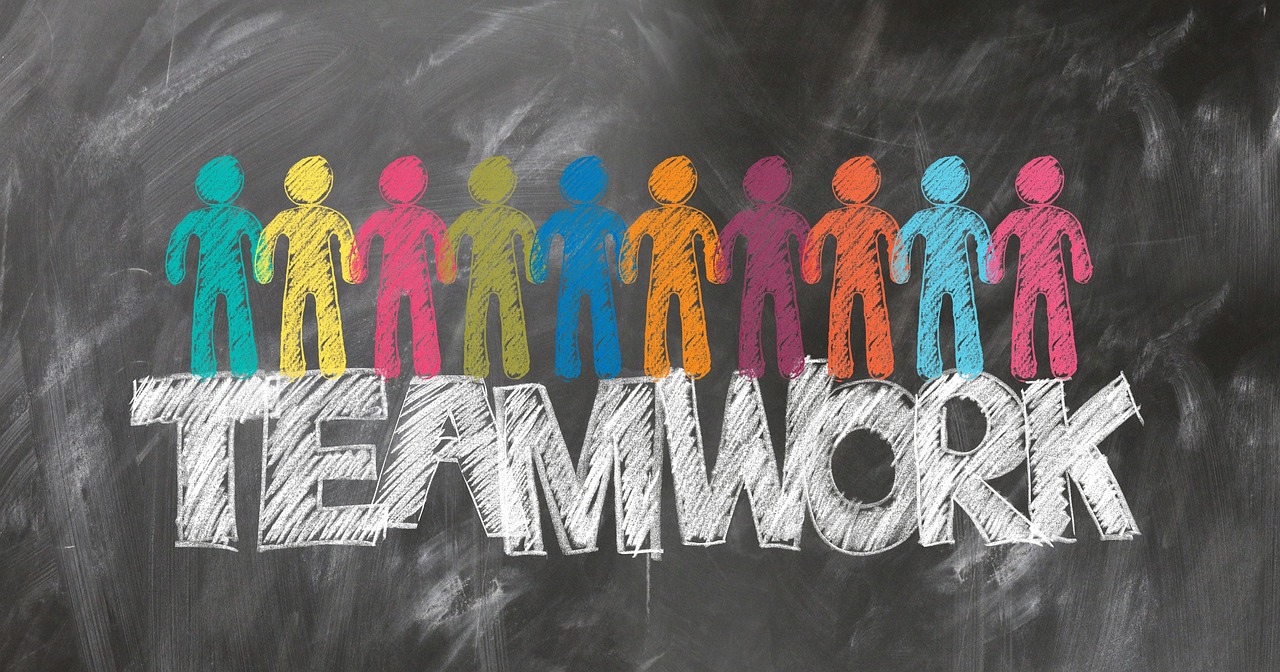
Human-AI Collaboration Experts
This article explores the transformative role of artificial intelligence in modern work environments, emphasizing its potential to enhance productivity, streamline processes, and foster innovation across various industries.
AI technologies can automate repetitive tasks, allowing employees to focus on higher-value activities. This shift not only boosts individual productivity but also improves overall workplace efficiency.
AI-powered tools facilitate seamless communication among team members, breaking down geographical barriers and ensuring that information flows freely, enhancing collaboration and teamwork.
Virtual assistants can help manage schedules, set reminders, and organize meetings, freeing up employees' time for more strategic tasks and improving overall time management.
AI can integrate with popular workplace tools, enhancing their functionality and providing users with a more cohesive and efficient experience.
AI-driven translation services can bridge language gaps in multinational teams, fostering inclusivity and improving understanding among diverse workforce members.
AI can analyze vast amounts of data to provide insights that inform strategic decisions, helping organizations to adapt swiftly to market changes and customer needs.
AI can personalize the employee experience by tailoring training and development programs, ensuring that staff members have the resources they need to grow and succeed.
AI can assess individual skills and recommend personalized learning paths, fostering continuous development and enhancing employee engagement.
AI tools can provide real-time feedback on employee performance, enabling managers to offer timely support and recognition, which boosts morale and productivity.
As AI continues to evolve, it will create new job roles that require human-AI collaboration, emphasizing the need for ongoing training and adaptability in the workforce.
The demand for AI specialists will grow as organizations seek to implement and maintain AI systems, creating opportunities for skilled professionals in this emerging field.
In a world increasingly dominated by AI, the role of becomes crucial. These professionals are not just tech-savvy; they possess a unique blend of skills that enable them to effectively bridge the gap between human intuition and AI's analytical prowess. Imagine a conductor leading an orchestra; the conductor (the expert) harmonizes the various instruments (humans and AI) to create a masterpiece of productivity and innovation.
As organizations adopt AI technologies, they face the challenge of integrating these systems into their existing workflows. This is where Human-AI Collaboration Experts shine. They analyze the strengths and weaknesses of both human workers and AI systems, ensuring that tasks are assigned based on the best fit for each. For example, while AI can analyze data faster than any human, it lacks the emotional intelligence needed for nuanced decision-making. Here, the expert steps in to ensure that both human insight and AI efficiency are utilized to their fullest potential.
Furthermore, these experts are responsible for training employees to work alongside AI. They develop training programs that not only teach employees how to use AI tools but also help them understand the value of collaboration with AI. This might include:
- Workshops on effective communication with AI systems.
- Training sessions on interpreting AI-generated insights.
- Guidance on ethical considerations when using AI in decision-making.
As the workplace evolves, the demand for these experts will only increase. Companies that invest in Human-AI Collaboration Experts will likely see a significant boost in innovation and productivity, transforming their work environments into hubs of creativity and efficiency.
Q1: What is a Human-AI Collaboration Expert?
A1: A Human-AI Collaboration Expert is a professional who specializes in integrating AI technologies into the workplace, ensuring that human workers and AI systems collaborate effectively.
Q2: Why is this role important?
A2: As AI becomes more prevalent, organizations need experts who can bridge the gap between human intuition and AI's analytical capabilities, maximizing productivity and innovation.
Q3: What skills are needed to become a Human-AI Collaboration Expert?
A3: Key skills include technical knowledge of AI systems, strong communication abilities, and an understanding of human psychology and workplace dynamics.
Frequently Asked Questions
- How does AI enhance productivity in the workplace?
AI enhances productivity by automating repetitive tasks, which allows employees to focus on more strategic and high-value activities. This shift not only boosts individual productivity but also improves overall workplace efficiency, making it easier for teams to achieve their goals.
- What role do virtual assistants play in improving communication?
Virtual assistants streamline communication by managing schedules, setting reminders, and organizing meetings. This support helps employees save time and enhances collaboration, ensuring that everyone stays on the same page and can work together more effectively.
- How can AI facilitate data-driven decision-making?
AI analyzes vast amounts of data to provide actionable insights that inform strategic decisions. By leveraging these insights, organizations can adapt swiftly to market changes and customer needs, leading to better outcomes and a competitive edge.
- In what ways can AI improve employee experience?
AI personalizes the employee experience by tailoring training and development programs to individual needs. It can assess skills and recommend customized learning paths, ensuring that employees have the resources they need to grow and thrive in their roles.
- What new job roles will emerge due to AI?
As AI evolves, new job roles will emerge, such as AI specialists who implement and maintain AI systems, and human-AI collaboration experts who bridge the gap between human workers and AI technologies. These roles will require ongoing training and adaptability to maximize the benefits of AI.
- How does AI provide real-time feedback on performance?
AI tools can track employee performance metrics and provide real-time feedback, enabling managers to offer timely support and recognition. This immediate feedback helps boost morale and productivity, fostering a more engaged workforce.
- Can AI help with language barriers in multinational teams?
Absolutely! AI-driven translation services can bridge language gaps in multinational teams, fostering inclusivity and improving understanding among diverse workforce members. This capability enhances collaboration and teamwork across different cultures.

